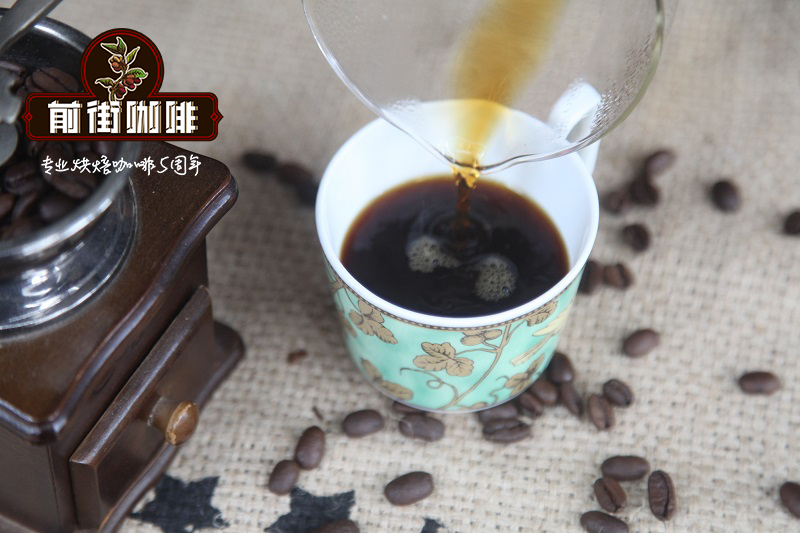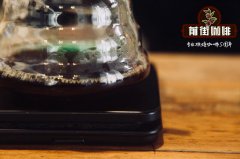Is it safe to drink 5 cups of coffee a day? How many cups of coffee a day is appropriate? The Role of Coffee

Professional coffee knowledge exchange more coffee bean information please follow the coffee workshop (Wechat official account cafe_style)
Coffee awakens hundreds of millions of people around the world every day. Even after the California government ruled that coffee causes cancer, people still can't give up their crazy love of coffee.
Moreover, most scientists believe that coffee is good for health. "the facts are very clear." "Coffee has been shown to protect against a variety of chronic diseases, including diabetes, cardiovascular disease and even cancer," said Dr. Frank Hu, chairman of nutrition at Harvard's T.H.Chan School of Public Health.
A trial without authority.
The California coffee cancer trial lasted eight years. Last month, a California court finally ruled that caffeine contained acrylamide, a chemical produced during baking, and ordered merchants to put carcinogenic labels on the packaging of coffee products. Acrylamide is widely found in baked goods, such as French fries, potato chips, breakfast cereals and bread, as well as in cigarettes. The judge ruled that California coffee companies must complete the rectification of the logo within a month.
However, there is no significant evidence in academic circles on whether acrylamide can cause cancer in humans. According to the American Cancer Research Center, there are no studies showing that acrylamide in food can cause cancer. The International Center for Cancer Research of the World Health Organization (WHO) conducted a statistical analysis of the results of more than 1000 studies on humans and animals and gave an official explanation in 2016: "there is no conclusive evidence that drinking coffee causes cancer."
"the decision of the California court is contrary to scientific evidence." "this can be hugely misleading among the public, because all previous scientific studies have shown that coffee is good for health," Dr. Hu said.
Dr. Hu, the author of a 2015 column on the association between coffee and heart and neurological diseases in the journal Circulation, pointed out that drinking less than five cups of coffee a day can effectively reduce the risk of heart disease and mental illness.
Four years ago, the US government also gave the green light to the safety of coffee consumption. The Nutrition guidelines issued by the USDA every five years make it clear that drinking 3-5 cups of coffee a day with caffeine intake no more than 400mg is conducive to maintaining a healthy diet.
The advantages outweigh the disadvantages.
According to the guidelines, "there is solid evidence that for healthy adults, drinking a moderate amount of coffee every day can reduce the risk of a variety of chronic diseases (such as cancer) or premature death (such as heart disease). But for those who never drink coffee or other caffeinated drinks, it is not recommended to add coffee to their diet. "
A recent academic article, which analyzed more than 200 studies and was published in BMJ last fall, said that drinking 3-4 cups of coffee a day "outweighs the disadvantages". The article found that drinking a moderate amount of coffee every day can help prevent liver disease and some cancers, and reduce the risk of death from stroke.
This is good news for more than 1.1 billion people who drink coffee every day.
But even today, when information technology is highly developed and hundreds of articles about the health benefits of coffee can be found on the Internet, California's ruling is still very misleading.
Not a panacea.
"of course, coffee is not a panacea." "but it's at least certain that coffee is good for the body as a whole, but to get the most out of it, it needs to be accompanied by reasonable healthy eating habits and strictly controlled consumption," Dr. Hu said.
"it is impossible to live a healthy life on only one kind of food." Said Alice Lichtenstein, director of the Tufts University Cardiovascular Nutrition Research Laboratory in Boston.
"A healthy diet is omni-directional, not determined by a single food. Although most studies have shown that drinking coffee is good for your health, if you drink coffee with sugar and cream, or if you eat it with cookies and desserts, it will certainly not work, or even harmful to your health. " Lichtenstein said.
Important Notice :
前街咖啡 FrontStreet Coffee has moved to new addredd:
FrontStreet Coffee Address: 315,Donghua East Road,GuangZhou
Tel:020 38364473
- Prev

The truth about these "coffee heresies" the advantages and disadvantages of coffee caffeine and roasting degree
Professional coffee knowledge exchange more coffee bean information Please follow the coffee workshop (Wechat official account cafe_style) from time to time, we will hear hearsay about some coffee knowledge that sounds ramming, not only are we bluffed, but we are more willing to use it to bluff others. But is it really true that these coffee truths, which are spread by word of mouth and sound like the same thing? This article
- Next

What grade does illy coffee belong to? is it good? How to drink illy espresso powder? can I brew it by hand?
Professional coffee knowledge exchange more coffee bean information please follow the coffee workshop (Wechat official account cafe_style) illy is the largest coffee merchant in Italy, in Italy almost well-known brand, studying in Turin Polytechnic University found that people there basically drink illy. Keep going to the high end.
Related
- Beginners will see the "Coffee pull flower" guide!
- What is the difference between ice blog purified milk and ordinary milk coffee?
- Why is the Philippines the largest producer of crops in Liberia?
- For coffee extraction, should the fine powder be retained?
- How does extracted espresso fill pressed powder? How much strength does it take to press the powder?
- How to make jasmine cold extract coffee? Is the jasmine + latte good?
- Will this little toy really make the coffee taste better? How does Lily Drip affect coffee extraction?
- Will the action of slapping the filter cup also affect coffee extraction?
- What's the difference between powder-to-water ratio and powder-to-liquid ratio?
- What is the Ethiopian local species? What does it have to do with Heirloom native species?

